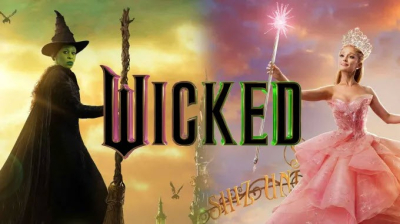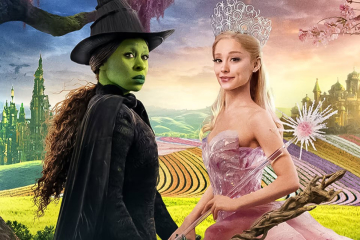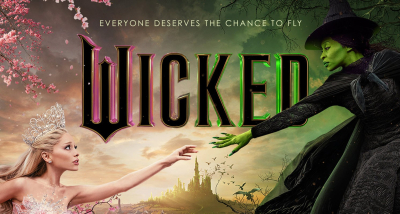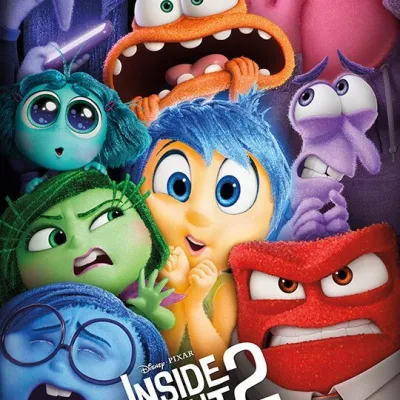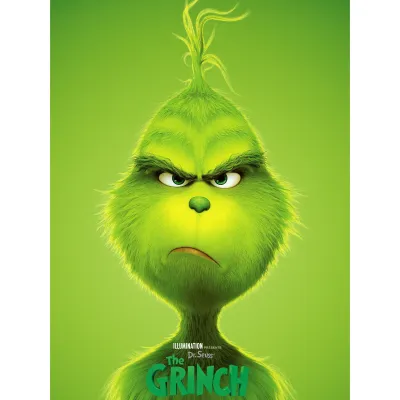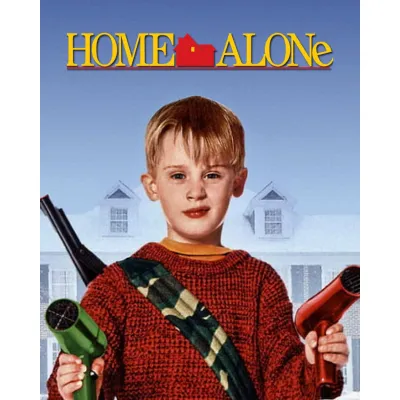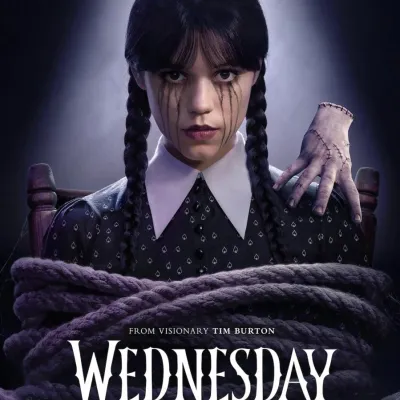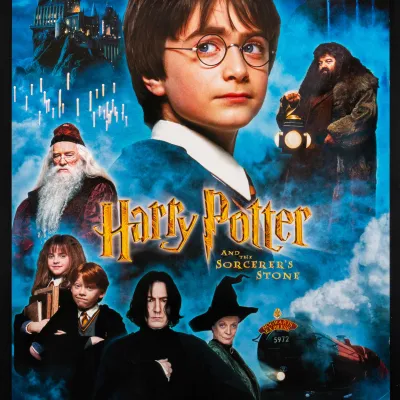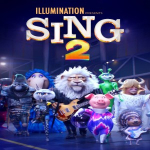Wicked
The story of Wicked delves into the rich tapestry of Oz, an enchanting yet complex universe first brought to life in L. Frank Baum's "The Wonderful Wizard of Oz." The musical rendition, crafted by Stephen Schwartz and based on Gregory Maguire's 1995 book "Wicked: The Life and Times of the Wicked Witch of the West," invites viewers on a mesmerizing adventure, exploring the origins of two famous characters: Elphaba, often seen as the unjustly perceived Wicked Witch of the West, and Glinda, the benevolent Good Witch. Together, they challenge societal expectations and confront the realities of friendship and destiny in a magical land rife with politics, intrigue, and moral ambiguity.
The Characters: A Deep Dive
One of the most compelling aspects of Wicked is its rich character development. Elphaba and Glinda, two polar opposites, symbolize contrasting ideals and beliefs. Elphaba is intelligent, fiercely independent, and often misunderstood, while Glinda embodies beauty, charm, and a more traditional approach to life. Their friendship evolves amidst the backdrop of prejudice and misunderstanding, providing audiences with a profound exploration of identity and societal roles.
Elphaba: The Complex Protagonist
Elphaba serves as the story's heart and soul. Born with green skin and an affinity for magic, she faces rejection and isolation throughout her life. As she navigates the complexities of her existence, viewers are compelled to sympathize with her struggles against a society that shuns her differences. Her transformation into the Wicked Witch is laden with emotional weight, as the narrative portrays her as a tragic figure rather than a villain.
Glinda: The Glittering Counterpart
Glinda, initially portrayed as a shallow, superficial young woman, experiences profound growth throughout the musical. Her evolution challenges the audience to reconsider their perceptions of beauty and privilege. As she grapples with her own beliefs and values, Glinda becomes a more relatable character, torn between her loyalty to Elphaba and her desire for acceptance in a world that prioritizes appearances.
The Music: A Melodic Journey
The music composed by Stephen Schwartz is essential in establishing the atmosphere and driving the story forward. Songs like "Defying Gravity" and "For Good" resonate with universal themes of friendship, personal growth, and acceptance. The melodies are emotionally charged, elevating the characters' journeys and allowing the audience to connect deeply with their experiences.
The Themes: Power and Prejudice
Wicked explores power dynamics and the effects of prejudice on its characters. The musical confronts issues of discrimination, fear, and the consequences of one's actions. Through the lens of two female protagonists, it captures the struggles against a flawed system while delving into the complexities of good and evil.
Visual Aesthetics: A Feast for the Eyes
Visually, Wicked is a stunning spectacle. The set design, costume choices, and lighting create a vibrant world that reflects the magical yet tumultuous nature of Oz. The striking contrast between the vibrant costumes for Glinda and the darker tones associated with Elphaba adds depth to the narrative, visually representing their differences.
Critical Reception: Breaking Records
Upon its debut on Broadway in 2003, Wicked garnered critical acclaim and commercial success. It shattered records at the box office and garnered a multitude of accolades, such as Tony Awards for Best Musical and Best Original Score. Audiences were captivated not only by the music and performances but also by the innovative storytelling that challenged traditional narratives surrounding familiar characters.
The Influence of Wicked on Pop Culture
Wicked has left an indelible mark on pop culture, influencing various art forms, merchandise, and even university curricula. Its themes resonate with audiences, prompting discussions about acceptance, identity, and the nature of good versus evil. The musical has spawned a dedicated fan base, with countless covers, parodies, and adaptations across different media platforms further solidifying its cultural relevance.
Stage versus Film: Anticipation and Speculation
While Wicked remains a beloved stage production, the anticipation surrounding its forthcoming film adaptation has ignited conversations among fans and critics alike. Boasting a cast filled with stars and a creative team comprised of the original Broadway producers, the anticipation is through the roof. The adaptation aims to encapsulate the core of the musical while drawing in a wider audience, igniting conversations about the narrative's journey from stage to screen.
The Casting Choices: A Star-Studded Lineup
The casting for the film adaptation has drawn significant attention. Audiences eagerly await the performances of established stars alongside rising talents. While the choices reflect a commitment to diversity and representation, there are discussions about how these casting decisions align with the characters’ original portrayals and the story's essence.
Musical Arrangements and Adaptations
As the film adaption approaches, there is speculation about how the music will be arranged for the big screen. Fans hope for a balance between retaining the beloved musical numbers and incorporating new elements that enhance the storytelling. The challenge lies in maintaining the emotion and impact of the stage production while adapting it to a cinematic format.
Arrival of Technology: Enhancing the Experience
Technological advances offer exciting possibilities for the film adaptation of Wicked. Enhanced visual effects can bring the fantastical elements of Oz to life in ways that resonate with contemporary audiences. Imagining how the world of Oz will be visually represented ignites anticipation, with dreams of spectacular flying monkeys and breathtaking set pieces capturing the imagination.
Fan Participation: Community Engagement
Cultivating a community around Wicked has played a crucial role in its enduring popularity. Fan art, social media discussions, and dedicated fan events allow audiences to engage deeply with the story and characters. This sense of belonging among fans not only showcases their passion but also amplifies the musical's themes of acceptance and understanding.
A Lasting Legacy: What Lies Ahead
The legacy of Wicked is undeniable. Its impact on musical theater, culture, and discussions surrounding identity and acceptance continues to inspire future generations. As the film adaptation unfolds, there’s a collective hope that it will honor the original while attracting new audiences. The story of Elphaba and Glinda, laden with lessons of resilience and friendship, is destined to resonate for years to come.
Pros
- Captivating Storyline: The narrative offers a unique perspective on familiar characters, exploring themes of friendship, identity, and societal expectations
- Emotional Music: The score by Stephen Schwartz features powerful songs that resonate with audiences on a personal level
- Strong Character Development: The evolution of Elphaba and Glinda provides depth and complexity, encouraging audiences to empathize with their journeys
- Visual Spectacle: The production is known for its stunning set designs, costumes, and lighting that create a magical atmosphere
- Cultural Impact: Wicked has significantly influenced pop culture, leading to merchandise, covers, and discussions that keep the story alive
- Diverse Themes: The musical addresses pertinent social issues such as prejudice, power dynamics, and the grey areas of morality, making it relevant to contemporary audiences
Cons
- Length of Performance: The show can be lengthy, which may lead to audience fatigue, especially for younger viewers
- Complex Themes: Some may find the themes difficult to grasp, as they challenge traditional notions of good and evil
- Casting Critiques: The casting choices for both stage and film adaptations can lead to debates among fans regarding authenticity and representation
